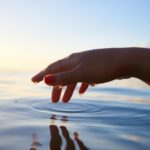Water is essential to life. It starts its journey through the digestive tract at the mouth, where it enters a body and provides cooperation in order for food to be absorbed by our bodies – which includes using water once we’ve ingested it!
In times of thirst or hunger, all you need are some healthy drinks like fruit juices that contain no added sugars but have been found effective when trying to hydrate yourself from the head down toe-up (and vice versa). You should avoid sugary soft drink alternatives because they actually dehydrate us more than anything else could ever do. These drinks will leave your teeth feeling coated with a film after consuming just one glassful’s worth.
The next stage is the stomach. In this area, water absorption depends on what you’ve eaten recently and how much time has passed since your last meal or drink; if there is no food left in our system by then (fasting), then little will pass through to be absorbed into other parts of the body like cell membranes etcetera- but once someone starts eating again after those delays have come around. Well, let’s just say they’re set for all eternity!
The large intestine is a key part of the digestive system, important for water reabsorption and prevention against fluid entering the bloodstream via lymphatic drainage. Then come kidneys which help with hydrodynamics by filtering out toxins only if they have enough fluids in their body organs; otherwise, they could cause kidney stones or other diseases related to lack of circulation through urine as well!
Water leaves the body in four main ways: feces, skin, kidneys (in the form of urine from the large intestine) and sweat, especially in summer when it leaves the mouth and nose in the form of gas, especially in winter.
Also Read: Where Does Water Go After Drinking?
Your Body Reaction After Drinking Water
Water relieves thirst
The brain’s main function is to regulate and maintain the body. When water levels are low, it helps make sure that cells stay alive by shrinking when most needed- this way, you’ll never go without a sip!
Most people know how important hydration is for our bodies because thirst kicks in but what happens after? Well, if we drink enough, then those receptors turn off, so there isn’t anymore neediness from either taste buds or intestines taking up all available resources; however, sometimes these reflexes happen too fast, leading to some risks such as dehydration which can lead to serious health issues like kidney damage over time.
Help the kidneys detoxify
The kidney can be considered a core detoxifying organ in the body, requiring water to maintain normal function and eliminate toxins. Insufficient amounts of this vital liquid can lead not only cause disease but also damage your organs over time if left unchecked. Drinking enough fluids every day will go far towards preventing potential issues with health! Two liters daily are sufficient for most people; however, drinking 3-liters each day has been shown to prevent more stones from forming than usual.
Water is the lifeblood of our brain.
When we don’t have enough water, it impacts everything from cognitive function and memory to visual-motor ability – impacting every aspect of our mental state in ways that can be seen as irritable or out-of-control.
The Best Water for The Body

When you understand where does the water goes in the human body after drinking, and the vital role water plays in human health, then you need to figure out a way to drink clean, safe water. Water filters are the easiest ways to get water free of dangerous toxins and contaminants for pure, healthy water. Waterdrop RO water filter system can be considered as one of the most advanced water purifiers on the market, which adopts 0.0001-micron pore size to eliminate various contaminants in tap water, including chlorine, fluoride, heavy metals, TDS, bacteria, viruses and more harmful substances.

